Renee Linder
Department Assistant, Data Manager & School of Education Licensure Officer
Professional Education Requirements
About
All teacher education candidates must take the required professional education courses. In addition, all education students must complete specific courses for an endorsement.
All licensed teachers must also have an earned college degree from Baker University or elsewhere. You must work closely with an advisor familiar with your content major requirements and teacher licensure requirements.
You can Do this
To obtain teacher licensure, graduates must pass the Praxis content area test.
Students can obtain building licensure in the state of Kansas. Out of state licensure can be obtained by transferring a Kansas license to the desired state. View individual state requirement information for reciprocal and provisional licensure.
General Education & Professional Education Requirements Checklist
Licensure Coursework
Required Professional Education Courses
Required Supporting Courses
Student Teaching Courses
Professional Licensure Requirements by State for Baker University School of Education Undergraduate Programs
Disclaimer: Baker University has made a strong effort to provide a comprehensive, accurate assessment of the information provided regarding state requirements; it does not guarantee its completeness or accuracy or timeliness of this information due to its evolving nature.
The student is ultimately responsible for verification and contact with the State Board of Education of the respective state about their ability to apply for licensure and to take the appropriate Praxis content area test.
| State Board of Education | Reciprocal Licensure: Teacher licensure requirements are met by Baker University School of Education curriculum. | Provisional Licensure: Teacher licensure requirements are met by Baker University School of Education curriculum. |
| Alabama | Met | Does Not Meet |
| Alaska | Does Not Meet | Met |
| Arizona | Met | Met |
| Arkansas | Met | Met |
| California | Met | Does Not Meet |
| Colorado | Met | Does Not Meet |
| Connecticut | Does Not Meet | Met |
| Delaware | Met | Does Not Meet |
| Florida | Met | Does Not Meet |
| Georgia | Met | Does Not Meet |
| Hawaii | Met | Met |
| Idaho | Met | Does Not Meet |
| Illinois | Met | Does Not Meet |
| Indiana | Met | Does Not Meet |
| Iowa | Met | Does Not Meet |
| Kansas | ||
| Kentucky | Met | Does Not Meet |
| Louisiana | Met | Does Not Meet |
| Maine | Met | Met |
| Maryland | Met | Does Not Meet |
| Massachusetts | Met | Does Not Meet |
| Michigan | Met | Does Not Meet |
| Minnesota | Does Not Meet | Does Not Meet |
| Mississippi | Met | Does Not Meet |
| Missouri | Met | Does Not Meet |
| Montana | Met | Does Not Meet |
| Nebraska | Met | Does Not Meet |
| Nevada | Met | Does Not Meet |
| State Board of Education | Reciprocal Licensure: Teacher licensure requirements are met by Baker University School of Education curriculum. | Provisional Licensure: Teacher licensure requirements are met by Baker University School of Education curriculum. |
| New Hampshire | Met | Does Not Meet |
| New Jersey | Met | Does Not Meet |
| New Mexico | Met | Does Not Meet |
| New York | Met | Does Not Meet |
| North Carolina | Met | Does Not Meet |
| North Dakota | Met | Does Not Meet |
| Ohio | Met | Does Not Meet |
| Oklahoma | Met | Does Not Meet |
| Oregon | Met | Does Not Meet |
| Pennyslvania | Met | Does Not Meet |
| Rhode Island | Does Not Meet | Does Not Meet |
| South Carolina | Met | Does Not Meet |
| South Dakota | Does Not Meet | Does Not Meet |
| Tennessee | Met | Does Not Meet |
| Texas | Does Not Meet | Met |
| Utah | Met | Does Not Meet |
| Vermont | Met | Does Not Meet |
| Virginia | Met | Does Not Meet |
| Washington | Met | Does Not Meet |
| Washington D.C. | Met | Met |
| West Virginia | Met | Does Not Meet |
| Wisconsin | Met | Does Not Meet |
| Wyoming | Met | Does Not Meet |
| America Samoa | Does Not Meet | Met |
| Guam | Does Not Meet | Met |
| Puerto Rico | Does Not Meet | Met |
Endorsements
Students pursuing a degree in education and teacher licensure work closely with faculty advisors from the School of Education to fulfill the requirements for a degree from Baker University and teacher licensure in Kansas. Baker University’s undergraduate education programs license teachers in the following areas.


